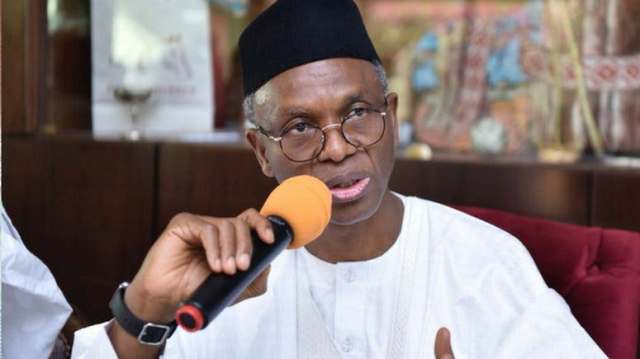The Governor of Kaduna State, Malam Nasir El-Rufai, has said that taxation, not oil revenue, can save Nigeria’s economy.
Speaking at the 23rd Annual Tax Conference organised by the Chartered Institute of Taxation of Nigeria, the governor noted that a country of tax payers is more likely to perform optimally.
- Tony Raven: Why executives should attend TEXEM, UK’s forthcoming programme
- Address incessant boat mishaps
He said the country must begin to move away from oil as it is neither the answer nor the question that would solve the country’s problem.
“The solution to our problem is better and more efficient taxation of goods and services in our economy.
The Governor said the tax net has captured only a minority of Nigeria, but there is a great opportunity to bring all data together including the National Driver’s License, Bank Verification Number (BVN) and National Identity Management System (NIMS) to get a database of adult Nigerians to achieve adequate taxation.
He said that in the last one year, COVID-19 had affected economic growth, tax collection and the prosperity of Nigerians, due to rapid deterioration of oil revenue’s contribution to the Federation Account.
“Indeed, I have been informed by our Commissioner of Finance that at the last FAAC meeting, it was the Federal Inland Revenue Service and the Custom Service that saved Nigeria.
“And I have been informed that the FAAC taking place in Abuja this week, as we speak, NNPC is likely to come with zero allocation. So, we have gotten to a point in this country whether we like it or not, due to continuous subsidy of petroleum products, most of which leak to the neighbouring countries, NNPC is unable to contribute anything significantly to the federation account,” he said.
He recommended taxation as the solution, adding that “Nigeria’s tax to GDP ratio is something in the region of 6 to 7 per cent and is one of the lowest in the world as comparator countries collect as much as 20 percent of GDP.
“Here in Kaduna State, with a GDP of about two trillion, we should be collecting N400 billion per annum as taxation, but we collect slightly above N60 billion,” he said.
President of the institute, Dame Gladys Olajumoke said there was no alternative to revenue for the government other than taxation.
She noted that people are unwilling to pay taxes because they believe they are not getting their money’s worth saying, “In other countries, when citizens pay tax, they have access to good health facilities, water, education, electricity and roads, but that is not the case in Nigeria.”
She noted that the government must create an enabling environment so that people will be willing to pay tax.

 Join Daily Trust WhatsApp Community For Quick Access To News and Happenings Around You.
Join Daily Trust WhatsApp Community For Quick Access To News and Happenings Around You.


